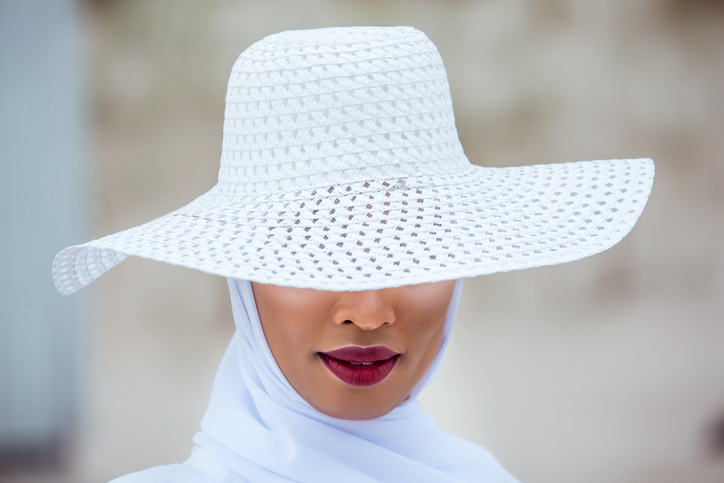10 Things To Know About That Friend Who Won’t Stop Bragging - Page 2
Share the post
Share this link via
Or copy link

Source: 4×6 / Getty
We all know someone who can’t seem to stop showboating. You know, the type who has to tell you how many countries they’ve visited every time you speak to them or tell you about their many degrees. The type who tries to make it seem as though their kids are brighter and more advanced than everyone else’s. The type to mention their salary in Facebook statuses or how much they paid for their home. They put on for their relatives, colleagues, friends, and even complete strangers. They do some humblebragging as well as some not-so-humblebragging on social media. They name drop. They put others down in order to feel bigger. The average person would classify this personality type as one of the worst because no one really likes a showoff. But have you ever wondered why some people are so obnoxiously boastful? Some psychologists believe that bragging can become somewhat addictive in the sense that it helps to fill a void in the perpetrator.
“He or she is either insensitive to begin with or becomes insensitive while bragging, like a person who becomes numb while drinking alcohol,” explains Dr. Andrea F. Pollard in an essay for Psychology Today. “Bragging is similar to getting a fix or fill of something, perhaps to forget the emptiness someone feels inside (think narcissism).”
And that’s just the tip of the iceberg when it comes to braggers. Here are ten more things to know about them.
They’re extremely insecure
Love MadameNoire? Get more! Join the MadameNoire Newsletter
We care about your data. See our privacy policy.
Beneath all of their boasting and delusions of grandeur, people who brag tend to be extremely insecure. Despite their big talk and flashy exteriors, they surprisingly don’t think very highly of themselves, which is why they attempt to overcompensate in their social interactions. They’re trying to convince you and in most cases, themselves, that they are worthy of respect, acknowledgment, admiration, and love.

Source: LumiNola / Getty
They’re deeply invested in what you think of them
They may carry themselves as though they believe you are beneath them. They may act dismissively towards you and may even insult you, but trust and believe, they are deeply invested in what you think about them. Think about it. Would you waste your time trying to impress someone whose opinion didn’t matter to you? No, you would not because it wouldn’t make sense and would just be a waste of time and energy. That neighbor or colleague who can never stop singing their own praises when they’re in your presence is pressed for you to like them and they want you to think highly of them.

Source: Westend61 / Getty
Their self-esteem is based on external validation
We’ve already established that boastful people have low self-esteem, but what we haven’t addressed is how bragging fills this void. While exalting themselves, braggers feel good about themselves at the moment because they are under the impression that they’re successfully convincing you of how wonderful, talented, wealthy, etc. they are. They crave external validation because it’s the only thing that makes them feel good about themselves. The thing is, the positive feelings that come from external sources are fleeting and as a result, the boastful are always scrambling for ways to make others view them in a favorable way.

Source: Westend61 / Getty
They don’t recognize that their bragging has adverse effects
At their core, boastful people just want to be liked and accepted. Sadly, they often fail to realize that their braggy ways tend to have an adverse effect and end up turning people off.
“Most people realize that they experience emotions other than pure joy when they are on the receiving end of other people’s self-promotion,” said Irene Scopelliti, a behavioral scientist at the City University London in England, who co-authored a study about braggers published in the journal Psychological Science. “But when we ourselves engage in self-promotion — either on social media or in-person — we tend to overestimate people’s positive reactions, and we underestimate their negative reactions.”

Source: Lorado / Getty
They tend to embellish
One thing to know about boastful people is that they are pressed to make people think highly of them and they are not above embellishing stories or flat-out lying to achieve their desired result. Have you ever listened to a boastful person speak and think to yourself, “There’s no way that actually played out how they’re saying it did”? You were probably right. If something sounds a little too good to be true, it probably is. People with this personality trait tend to distort reality to sway the perception of others. It’s a sad, slippery slope.

Source: Westend61 / Getty
They usually can’t tell when people are sick of their bragging
In addition to being completely clueless that their bragging makes people like them less, they also can’t seem to pick up on social cues that indicate when people have had enough. The uncomfortable fidgeting, eye rolls, broken eye contact, and other indicators that a conversation has gone terribly left all seem to fly right over their heads, which makes interacting with them even more cringy. They seem to only be focused on what they’re saying and the way they want to convey themselves to the person in front of them, but not interested in paying attention to how their listener is reacting.

Source: Westend61 / Getty
When they put you down, they’re projecting their insecurities
One of the darker sides of interacting with boastful people is their tendency to put others down in an attempt to elevate themselves. They will go to great lengths to point out what’s wrong with the people around them because it makes them feel better when others feel inferior to them. Ironically, the so-called flaws that they attempt to point out and magnify in others are often traits that they possess themselves. Sadly, instead of doing the work to be better, they would rather tear people down.

Source: Natalia Gavrilova / EyeEm / Getty
They have identity issues
Some believe that bragging is a symptom of an identity crisis because as Psychology Spot explains, “people who feel complete and self-confident do not need to constantly show off their achievements and qualities because internal recognition is enough for them, they do not need external applauses to underpin their ‘ego.'” Oftentimes, these are the people who base their identities on things like their title at work, marital status or overall relationship status, the number of stamps they’ve accumulated in their passports, their accomplishments, and so on, which is why they have to constantly bring these things up in conversations.

Source: Jeremy Poland / Getty
Social media has likely exacerbated their issues
Social media can be a slippery slope for us all but it’s especially dangerous for people with self-esteem and identity issues. People only show the aspects of their lives that they want others to see, which can cause boastful folks to spiral as they often compare themselves to others in an attempt to measure their success and make themselves feel better. This is fine when they feel that they’re doing better than everyone else, but in life, there is always someone who has bigger and better. As a result, braggarts often lose touch with their own reality as they seek to portray the picture-perfect life on their social channels and attempt to keep up with the Joneses.

Source: Dimensions / Getty
You can usually stop the bragging by refusing to engage
Every bragger needs an audience, so one of the best ways to stop them in their tracks is when you refuse to engage with them. You may choose to politely change the subject or you can simply ignore the boastful commentary once it becomes too much. Refusal to engage means not even giving them empty “uh huhs” and “okays” because that will only encourage them. Go radio silent. They may not notice initially and may go on and on for a few minutes, but they will eventually realize that they’re talking to themselves.
-

Meet Dominique Fils-Aimé, The Haitian-Canadian Star Redefining Jazz For A New Generation: ‘This is My Vision' [Exclusive]
-

Cooking With Purpose — How Brittney Williams Honors Her Caribbean Roots Through Food
-

Bucket Baddies With Big Energy — The 30 Hottest NBA Players In The Game Right Now
-

8 Famous Lesbian Women Who Were Married To Men



